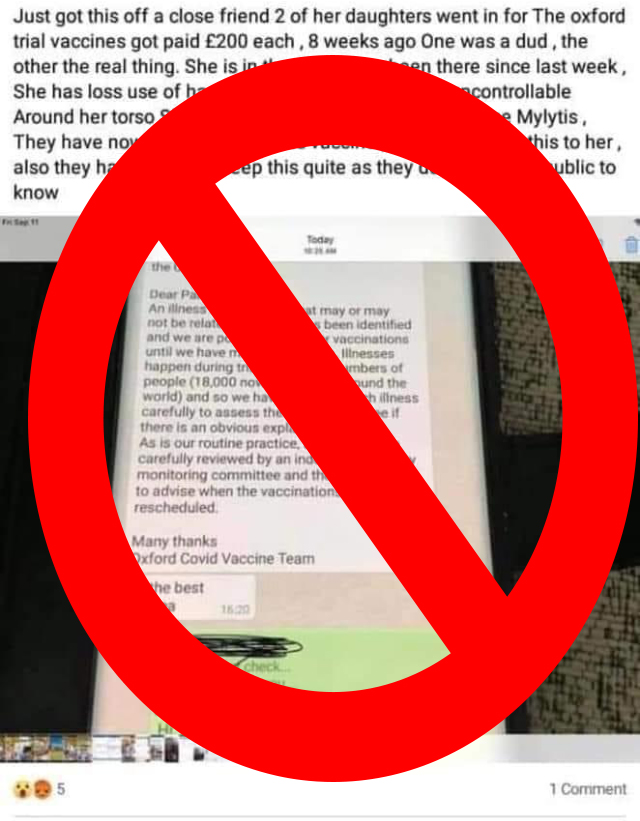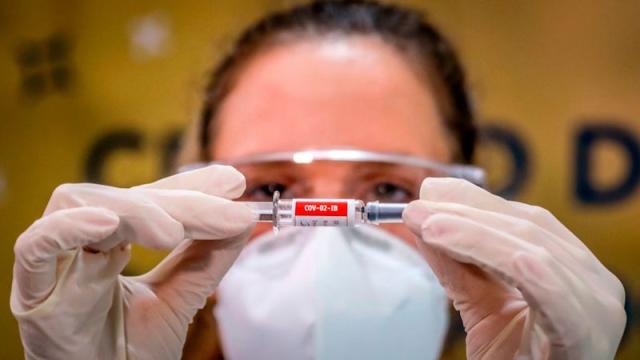In the race to find a COVID-19 vaccine, there’s at least 130 different candidates being tested around the world. And earlier this week, one of the most promising candidates hit a bump.
On Tuesday, pharmaceutical company AstraZeneca announced it was “voluntary pausing” its Phase 3 trial in the UK, after a report of a serious adverse event. In response, the company was reviewing what it called a “single event.”
While potentially disappointing, most of the reaction recognised that this is a normal part of the process of finding a safe and effective vaccine. Most, but not all.
How did anti-vaxxers respond to the COVID-19 vaccine trial suspension?
Anti-vaccine campaigners and groups — who’ve grown in size during the pandemic — jumped on the opportunity to spread misinformation and further their own, wrong narratives about vaccines.
Stanford Internet Observatory technical research manager and misinformation researcher Renee DiResta noticed that US-based anti-vaxxers were seizing the moment.
Antivaxxers are spinning this story – of AZN behaving responsibly, and the clinical trials process doing what it’s intended to – and extrapolating out to claim that routine childhood vaccines are dangerous as well. As they said they would do back in January when COVID emerged. pic.twitter.com/QB3yu07Z97
— Renee DiResta (@noUpside) September 9, 2020
“Antivaxxers are spinning this story,” she tweeted, “of AZN behaving responsibly, and the clinical trials process doing what it’s intended to – and extrapolating out to claim that routine childhood vaccines are dangerous as well. As they said they would do back in January when COVID emerged.”
Australian anti-vaxxers were no different. Australia’s biggest and oldest anti-vaccine group shared a screenshot of a viral Facebook post that claims to show a text message to a trial participant.
But the image appears to be a hoax. The text message contains inaccuracies (the trial participant who fell sick does not have transverse myelitis) and spelling mistakes.

Another popular post in one of Australia’s largest conspiracy groups alleged that scientists had downplayed the number of people showing adverse reactions. There is no evidence supporting this, either.

Whereas other anti-vaccine campaigners used the result to scaremonger about the general health and effectiveness of vaccines, including this prominent Australian anti-vaxxer.

Gizmodo has chosen not to name them to limit the spread of their misinformation.
What does the COVID-19 suspension trial suspension show?
Anti-vaxxers have tried to spin the trial suspension as proof of the ‘danger’ of vaccines — but it actually shows the exact opposite.
There’s still not much known about the patient who fell ill. We don’t know whether the person who fell ill even received the vaccine (she may have received a placebo instead).
Even if she did receive the vaccine, it may just be a coincidence. After all, there are 50,000 people in the trials for the AstraZeneca vaccine — some people are bound to fall ill coincidentally.
But even if hypothetically the patient did receive the vaccine and it caused the illness — again, far from proven — disclosure of this event is actually proof of the transparency and rigour of vaccine development.
In the minds of anti-vaxxers, it’s nefarious scientists who are developing poisonous vaccines in secret.
But this is the opposite! They’re being upfront about progress of the trial and its potential pitfalls because that’s how science actually works. And that should give us confidence for when they say the vaccine does work and is safe.
This vaccine may not end up being approved for public use. But if it does, we can be pretty confident that it’s the scientists we should listen to, and not the anti-vaxxers.
